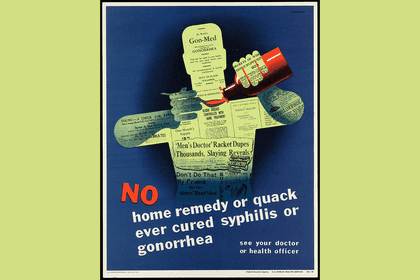
Reframing Resistance
How to communicate about antimicrobial resistance effectively
This report aims to guide experts, communicators and practitioners to communicate with impact, so that the public understands and supports action on drug-resistant infections.
What’s inside
- findings based on extensive research (in-depth interviews with experts; quantitative and qualitative message testing with 12,000 people in Germany, India, Japan, Kenya, the UK, the USA and Thailand; media and social media analysis)
- recommendations on effective framing and language
- practical toolkit to help apply the recommendations
Who this is for
- policy makers, researchers and experts working on drug-resistant infections
- journalists and communicators
- clinicians, practitioners and patients
Why this is important
Global action to tackle drug-resistant infections is not happening at the scale and urgency needed. Action among political leaders can be strengthened with public support. But public understanding of antimicrobial resistance and its impact is currently limited.
We can change this by communicating more powerfully.
Key recommendations
The report outlines five evidence-based principles for communicators to keep in mind when talking to the public about drug-resistant infections. When used together, they are more likely to create communication that informs, motivates and persuades.
1. Frame drug-resistant infections as undermining modern medicine
- Demonstrate how drug-resistant infections are a cross-cutting threat across all of medicine, which set back and undermine treatments that we have come to rely on.
- Illustrate using multiple examples that are relevant to the audience.
2. Explain the fundamentals succinctly
- Help the public understand resistance (particularly that bacteria develop resistance, not humans).
- Include explanation of the part that human activity is playing in accelerating the issue.
3. Emphasise that this is a universal issue; it affects everyone, including you
- Show that anyone could be affected, not only the most vulnerable groups.
- Tell human stories; numbers and statistics generally resonate less strongly with the public.
4. Focus on the here and now
- Show the current impact of drug-resistant infections, rather than projections or apocalyptic frames.
5. Encourage immediate action
- Frame the issue as solvable – people want to know what can be done about the problem.
Downloads
- Reframing resistance
- Reframing resistance – executive summary
- Reframing resistance – the framing toolkit
- Reframing resistance – Appendix A
- Reframing resistance – Appendix B
- Reframing resistance – Appendix C
- Reframing resistance – the framing toolkit (Vietnamese language)
- Reframing resistance – the framing toolkit (German language)
- Reframing resistance – the framing toolkit (Japanese language)
- Reframing resistance – the framing toolkit (Thai language)
The language we use when talking about drug-resistant infections plays a crucial role for raising public awareness. People need to understand what drug-resistant infections are, that they are not limited to one illness or country, and that they are affecting people today.
Share on social media
You can share any resources on this page. Use the hashtag #StopSuperbugs.
Pressing play on the video above will set a third-party cookie. Please read our cookie policy for more information.
Doomsday messages about the ‘antibiotic apocalypse’ might grab attention, but they fail to inspire action to #StopSuperbugs.
New @wellcometrust research shows how words matter: wellcome.org/reframing-resistance
Watch the webinar
In this webinar, you’ll hear about: what framing is and why it's important for driving policy action (01:40), research methodology for Reframing Resistance (07:30), the current communications landscape for antimicrobial resistance (10:35), and the five recommendations in the report (15:08).
Pressing play on the video above will set a third-party cookie. Please read our cookie policy for more information.
Contact us
We're keen to hear about your experiences of using the report and toolkit, and any ideas on what tools or advice would be useful for you. Let us know at DrugResistantInfections@wellcome.org.
For media enquiries, contact Maggie Stratton at +44 (0)207611 8609 or m.stratton@wellcome.org.

